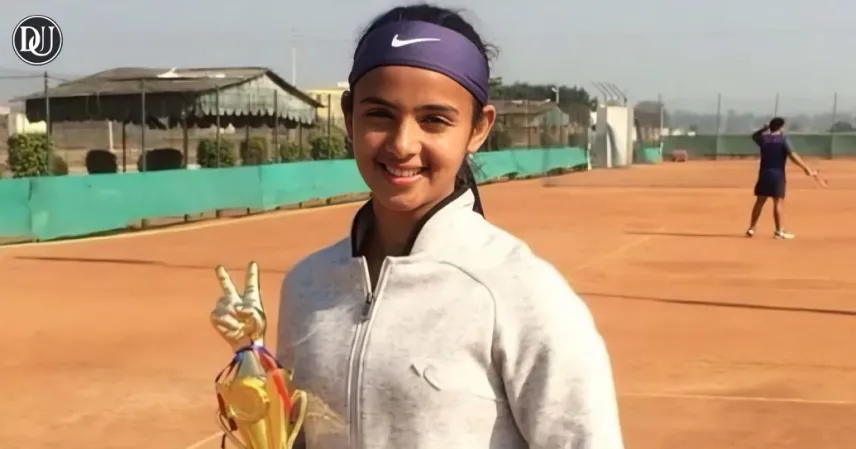In a horrifying incident that has sent shockwaves across the nation, 25-year-old state-level tennis player radhika yadav was allegedly shot dead by her own father in Gurugram. The tragic crime, rooted in a complex mix of domestic tension, economic strain, and patriarchal mindset, unfolded at their residence in the Palam Vihar area.
The murder of such a promising athlete has triggered widespread outrage and reignited conversations about women’s safety, mental health within families, and the growing strain between generations in Indian households.
Who Was Radhika Yadav?
Radhika Yadav was a known name in the Haryana and Delhi tennis circuit. A state-level tennis player who had represented her district and state in several tournaments, Radhika was known not only for her athletic talent but also for her vibrant personality on social media. She had a growing presence on platforms like Instagram, where she regularly posted content related to her fitness routine, tennis practice, and personal moments.
Friends and fellow players described her as “dedicated, ambitious, and fearless.” She was financially supporting her family and reportedly bore a significant share of household expenses through coaching and endorsements.
What Led to the Tragedy?
According to preliminary police investigations, the relationship between radhika yadav and her father had become strained in recent months. Sources close to the family reported frequent arguments over her social media activity, particularly Instagram reels that her father allegedly disapproved of. In addition, the father was reportedly feeling humiliated over being financially dependent on his daughter.
On the night of the incident, a heated argument broke out between the two. Unable to control his anger, the father allegedly picked up a licensed revolver and shot Radhika multiple times in a fit of rage. She was declared dead upon arrival at a nearby hospital.
The father, identified as a former private security guard, was arrested at the scene. He has confessed to the crime during initial interrogation, according to police officials.
The Social Media Angle
Radhika’s growing popularity on Instagram had been a point of contention at home. Police have stated that the father objected to her appearance and behavior in the reels, calling them “indecent” and claiming they brought shame to the family.
This mirrors a broader societal tension between traditional family values and the autonomy exercised by younger generations, especially women, in the digital age. For radhika yadav, her presence online was an extension of her personal and professional identity—a means to express, market, and empower herself.
Family and Neighbors React
Neighbors and extended family members have expressed disbelief at the incident. Many described Radhika as respectful and hardworking. “She was the pride of the colony,” said a neighbor. “Always focused on tennis, helping children with their fitness, and earning money to support her family.”
The mother and younger brother of radhika yadav were reportedly not home at the time of the incident. They returned to find the house surrounded by police and their world shattered.
Police Investigation Underway
Gurugram Police have launched a full investigation into the case. The accused has been booked under IPC Section 302 for murder and is currently in custody. His mental condition, past behavior, and any signs of abuse or earlier domestic violence are being looked into.
Authorities are also reviewing Radhika’s phone and social media accounts to understand whether any threats or previous domestic conflicts were documented digitally.
Police officials are calling this a “clear case of domestic violence leading to murder,” but are cautious about revealing more details until the investigation is complete.
Public Outrage and Feminist Voices Speak Out
The incident has sparked a wave of public anger. Social media has been flooded with messages demanding justice for radhika yadav and condemning the deep-rooted patriarchy that still dictates what women can wear, say, or post online.
Several women’s rights organizations have called for mental health support systems to be integrated within families and community education about digital freedom and consent.
“This isn’t just a crime of passion—it’s the tragic outcome of a patriarchal belief that a daughter owes her dignity to her father's approval,” said a women’s rights activist in Delhi.
Remembering Radhika
Radhika’s coach and teammates have planned a candlelight march in her honor. Many have suggested naming an upcoming tennis tournament after her as a tribute to her passion and legacy.
She is remembered not only for her victories on the court but for standing tall in a society where women athletes still face resistance. Her untimely death is a cruel reminder that societal change still has a long way to go.








